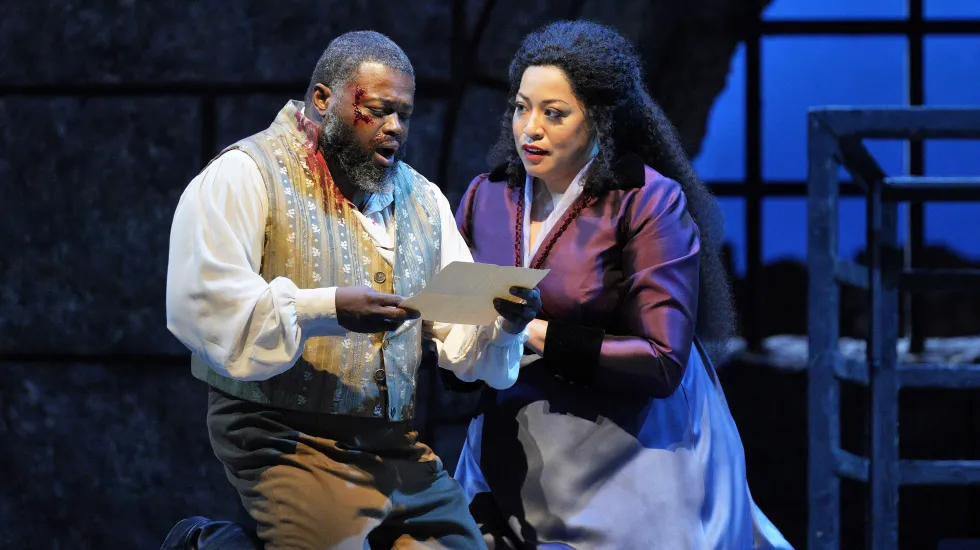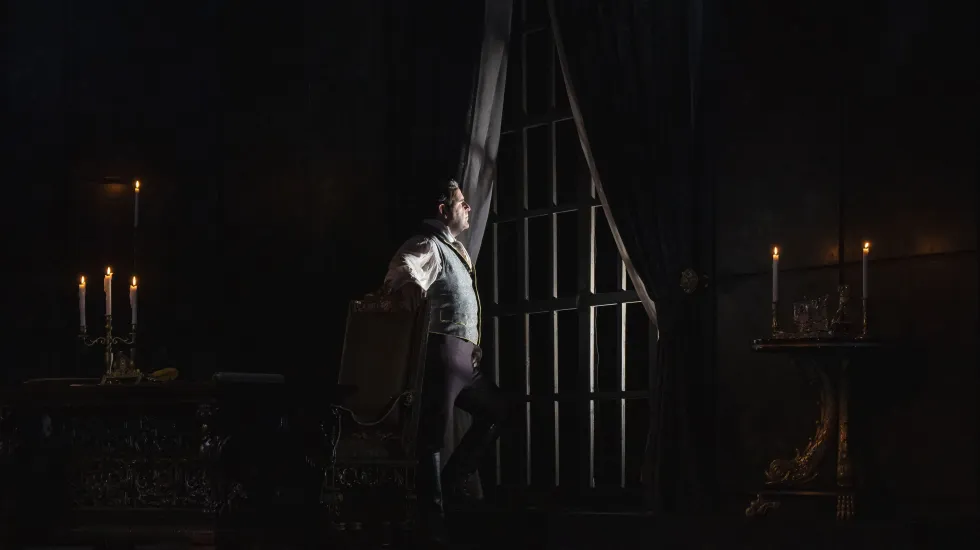
Opera companies often present productions that reimagine classic works, offering some kind of updated, conceptual or other otherwise unexpected dramatic takes.
When such unconventional stagings succeed, they can refresh and re-energize a familiar stalwart in exciting and welcome ways. But when they flop, they distort the opera’s meaning and detract from its potency.
Lyric Opera of Chicago’s latest production of Giacomo Puccini’s “Tosca” (1900), which opened Saturday evening at the Lyric Opera House, takes completely the opposite tack. It presents a version of one of the best-known and most popular pieces in the operatic repertory that could hardly be more traditional.
When: 7 p.m. March 15, six additional performances through April 10
Where: Lyric Opera House, 20 N. Wacker
Tickets: $39-$319
Running time: 2 hours and 50 minutes, including two intermissions
Info: (312) 827-5600; lyricopera.org
Seen at Lyric for the first time, the scenery was originally created in 1972 for the San Francisco Opera by the famous and once-ubiquitous French director and designer Jean-Pierre Ponnelle, who died in 1988.
The sets are opulent, hyper-realistic and unquestionably beautiful, especially the detailed interior of the church in the opening scene, with Ponnelle making skillful use of perspective to give it an impressive sense of vastness and depth.
The overwhelmingly historical look and feel of the visuals, including Marcel Escoffier’s matching costumes, leave little possibility for any dramatic rethinking. So, director Louisa Muller largely stayed out of the way and simply relied on the innate power of this searing story of love, lust and betrayal.
With electric performances by two of the three central characters and a vivid realization of Puccini’s ceaselessly compelling score by Lyric’s first-rate pit orchestra, this straightforward approach for the most part proved highly effective.
Set in Rome in 1800 against the backdrop of a Napoleonic invasion, this opera starts with an artist, Mario Cavaradossi, who is in love with Floria Tosca, an operatic diva. The singers portraying these two roles, tenor Russell Thomas and soprano Michelle Bradley, are wonderfully well matched vocally and dramatically and they generate sparks in their romantic duets in the first and third acts.
Thomas has a natural, easy feel for Puccini’s Italian musical stylings. He could hardly have been more comfortable as Cavaradossi, delivering the character’s soaring lines with technical assuredness and thrilling expressiveness.
Cavaradossi hides a political revolutionary, Spoletta (tenor Rodell Rosel), who has escaped, and he is arrested by Rome’s cruel police chief, Baron Scarpia. The official has longed to have his way with Tosca, and he sees the artist’s imprisonment as just the bargaining chip he needs with the singer.
Bradley in her Lyric debut is every bit Thomas’ equal, hitting every high note and compellingly conveying Tosca’s tragic poignancy and unflinching mettle. She is completely convincing when she stabs Scarpia and spits the words, “Die and be damned.”

Baritone Fabián Veloz largely hits his marks as Scarpia and holds his own with the two other principals, but his performance never really comes alive in the same way. While Veloz conveys some of the police chief’s malice, Scarpia should be dripping with evil and lasciviousness, and that is not the case here.
Enlivening and enriching this production all along the way is 41-year-old conductor Eun Sun Kim, who began her tenure as music director of the San Francisco Opera last year. She is generating considerable buzz in the opera world, and it’s not hard to understand why.
Kim displays a keen understanding of the dramatic arc of this well-constructed opera and an instinctive sense of tempo, knowing when to pull back and when to key the action with a crackling down beat. Let’s hope to see her back in Lyric’s pit soon.
One of the evening’s most memorable moments came before the production even began. Anthony Freud, Lyric’s president, general director and chief executive officer, took the stage to profess the international company’s solidarity with the people of Ukraine and to announce an opening performance of the country’s national anthem.
But what followed wasn’t just an instrumental rendition by the pit orchestra. The curtain went up to reveal the company’s chorus in street clothes in front of the set, and they sang the anthem in moving fashion as the audience stood in respect.







